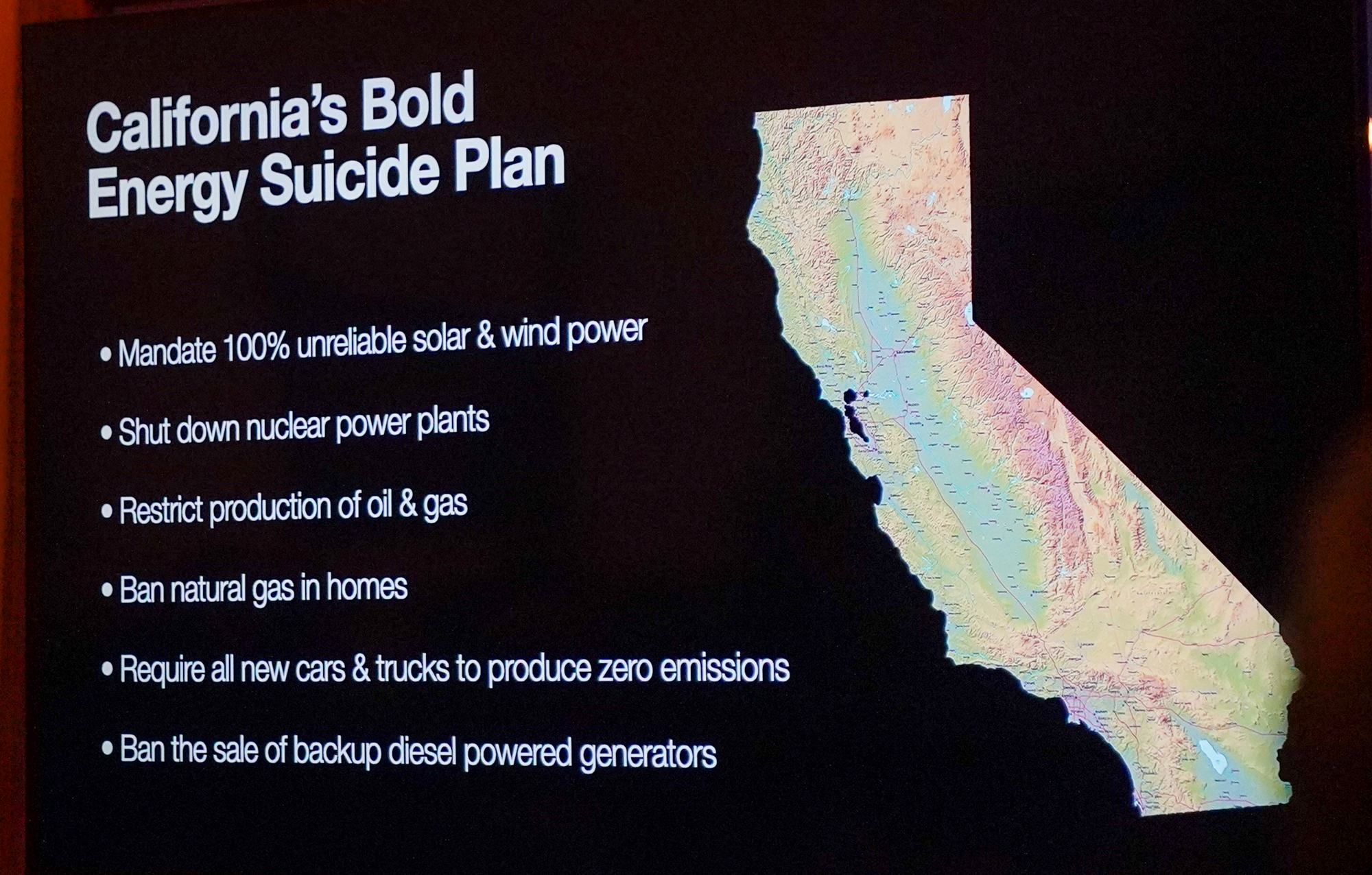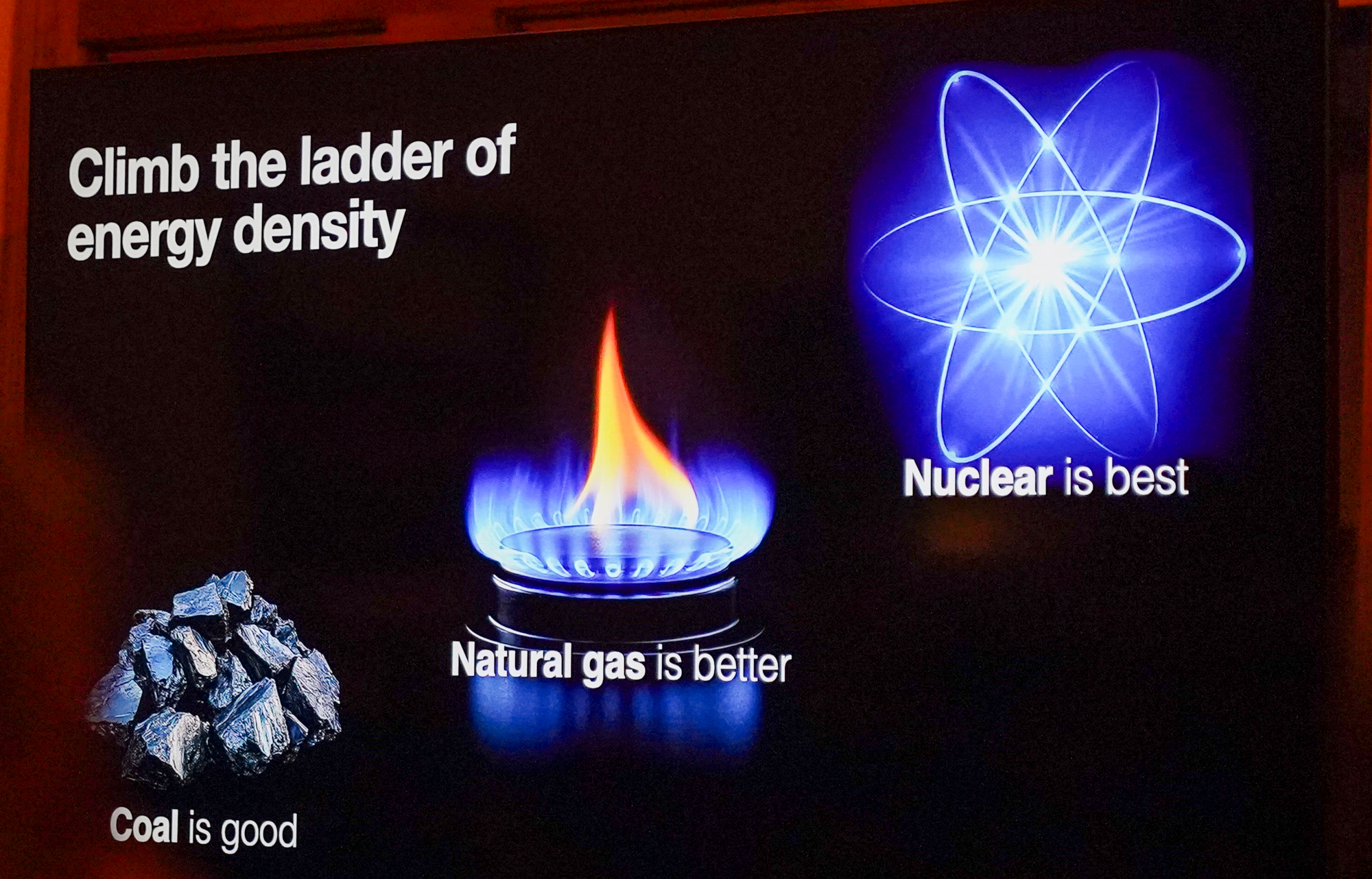By David Rogers. JEFFERSON, N.C. —When it comes to guest speakers to talk about the world’s transition in how energy is produced, Blue Ridge Energy gets the highest marks for featuring Brian Gitt as the keynote presenter at the energy co-op’s Community Leaders Council Fall Meeting hosted at Jefferson Landing, on Sept. 24.
America and most of the rest of the world has it all wrong, says Gitt. Among other things, he told the roughly 150-strong audience of High Country business and government leaders:
-
- We should be producing and consuming more energy, not less.
- Solar and wind energy production is not the best solution. In fact, they even compound the problem from environmental and efficiency standpoints.
- Don’t give up on oil and gas.
- Advanced nuclear is much more efficient and more environmentally friendly than solar and wind.

Gitt built his presentation around three basic tenets.
-
- More energy fuels progress.
- More energy reduces poverty.
- More energy protects nature.
He admitted that some of what he suggests is counterintuitive, at least at first glance, but what made Gitt’s presentation particularly compelling was his use of data from authoritative sources to support his logic and conclusions.
America and most of the rest of the world has it all wrong.
It is hard to argue with his first principle, “More energy fuels progress.” While precursors of what we know today as electricity date back to antiquity, the theoretical understanding of it progressed slowly until the 17th and 18th centuries. Then, energy got jumpstarted in the 19th century with the development of electricity’s industrial and residential applications, according to Jones, D.A. (1991), “Electrical engineering: the backbone of society”, IEE Proceedings A – Science, Measurement and Technology.
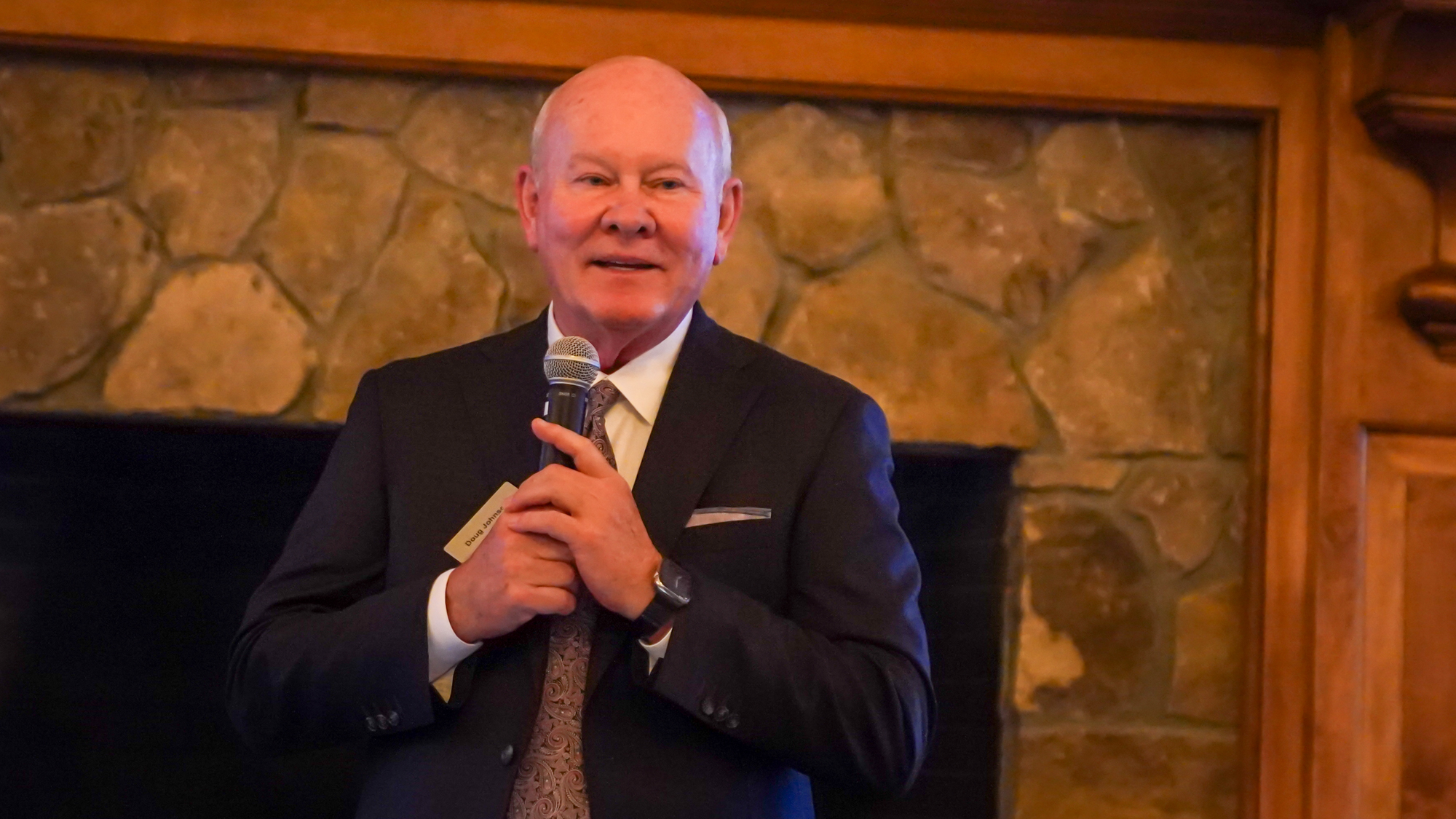
Gitt’s research looked at economic development from 1800 onward, suggesting that the production of energy for commercial, industrial and residential applications had a profound impact on social and economic development. Quantified, he offered in his presentation that 700 times more energy is being produced today than in 1800, and it is more than coincidental with the advances in economic development and technology in the so-called developed countries.
“Energy gives us freedom from famine… freedom from freezing… and freedom from disease,” Gitt offered to his attentive audience, while asking a rhetorical question: “If I gave you $10,000 to go without, how many of you would go without electricity for 24 hours? for a week? for a month?”
Gitt underlined how important energy consumption is intertwined in our daily lives? Without energy, there would be no Internet, cell phones, computers, cars, heat, stoves, refrigerators… any number of things that we have come to depend on to make living more productive or more comfortable.
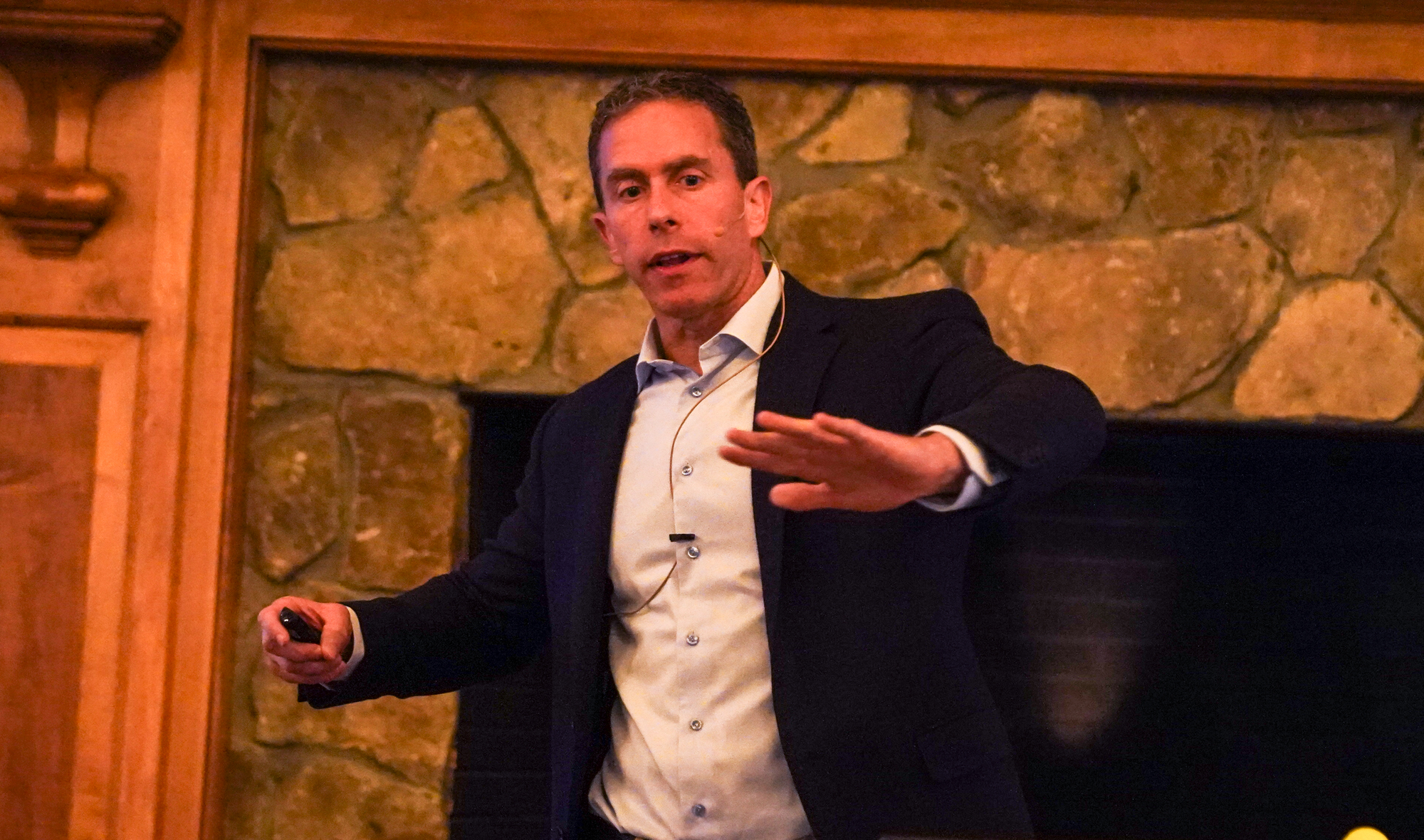
Addressing Energy Poverty
Even in underlining how important energy production and consumption are to the developed nations, Gitt provided some telling facts about what he termed, “energy poverty”:
- 3.7 billion people in the world live in energy poverty.
- 5 billion people wear hand-washed clothes.
- 2.3 billion people cook using wood, dung and charcoal.
He went on to share that energy poverty is responsible for approximately 10 million deaths every year because of indoor air pollution, lack of clean water, and limited healthcare.
“More energy equals less poverty,” said Gitt, citing China as one of the most recent examples. “In 1980, 92 percent of China’s people lived in extreme poverty. Today, less than 0.1 percent of the population lives in extreme poverty.”
Gitt suggested that the dramatic reduction in extreme poverty is not a coincidence, that China today uses 500 percent more energy today than in 1980.
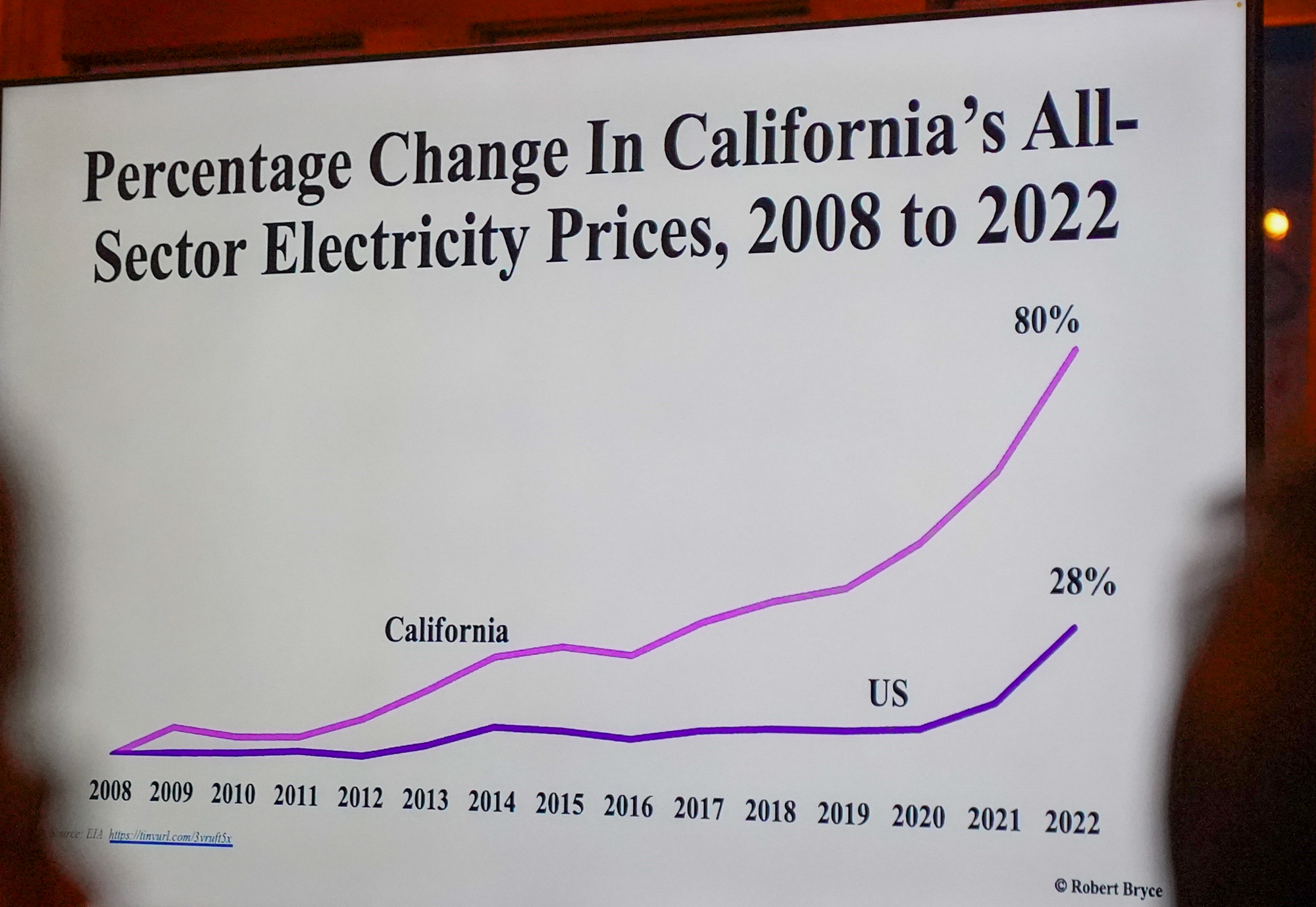
Protecting the Environment
A self-described environmentalist, Gitt said that effectively applied energy also can protect nature, even while fostering economic growth. Showing a chart with data from the U.S. Environmental Protection Agency, he reported that even over a period of time when energy consumption increased 48 percent, Gross Domestic Product increased 248 percent and air pollution declined 77 percent.
The author of “In the Dark,” his 2023 published book (given by Blue Ridge Energy to every audience member) that contains much of the information contained in his presentation, Gitt showed how modern energy production results in less deforestation, showing a dramatic example of the border between Haiti and the Dominican Republic. There is a stark contrast on each side of the border wall, where Haiti is all but denuded of vegetation because the people use wood for cooking and heating, while the Dominican Republic, with more modern energy production on the other side of the border is rich with vegetation, including trees.
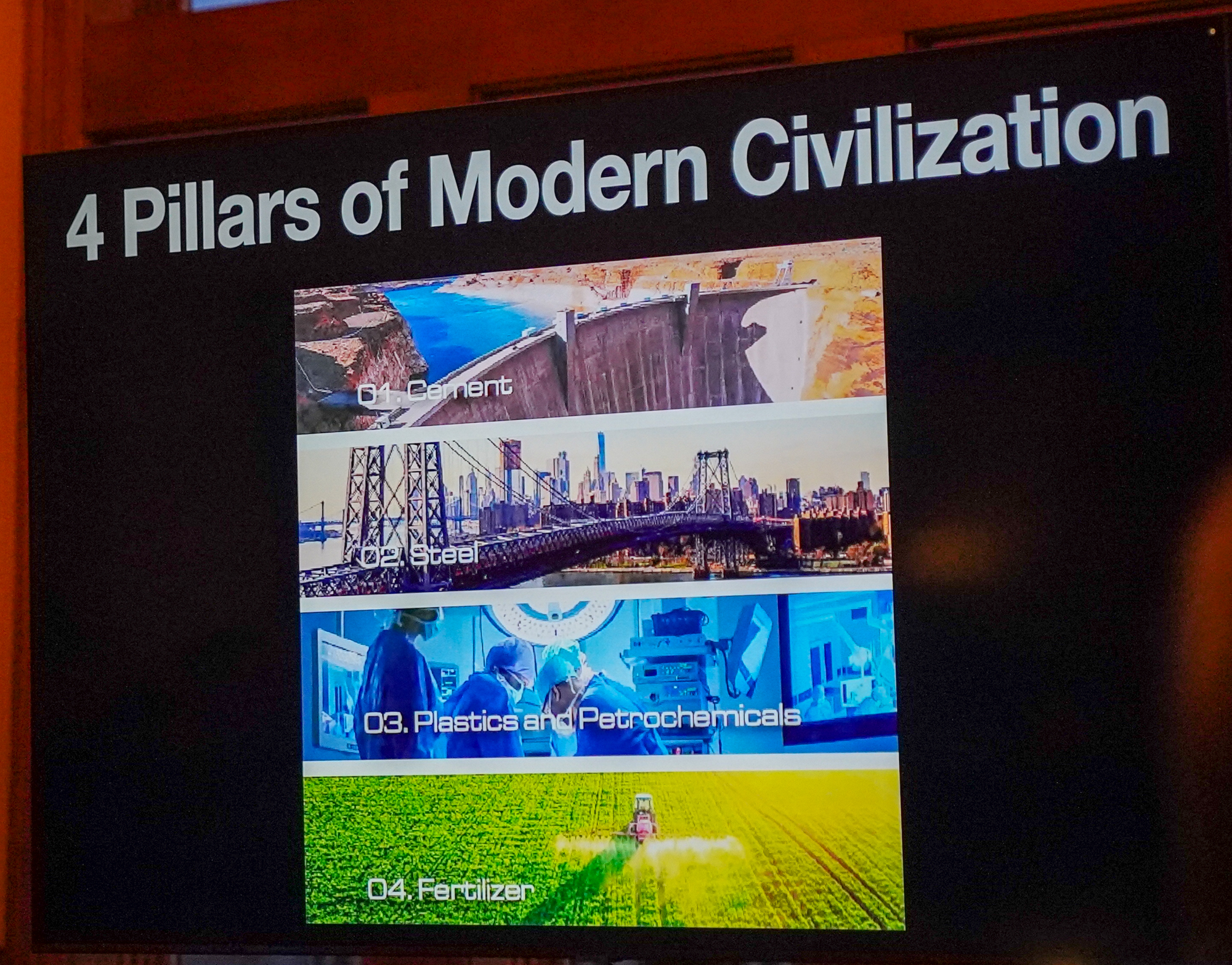
Increased energy production has also resulted in less land use for agricultural purposes, said Gitt. With data taken from OurWorldData.org, he reported that agricultural land use per capita has declined by some 50 percent since modern agriculture was introduced even while boosting the world’s food supply.
Gitt’s presentation lasted approximately one hour and 15 minutes, but his methodically laid out case kept the audience engaged with facts, figures and statements that nurtured critical thinking.
Take electric vehicles, for example. It isn’t such a “clean” alternative for fueling cars, after all, and much less efficient, he pointed out.
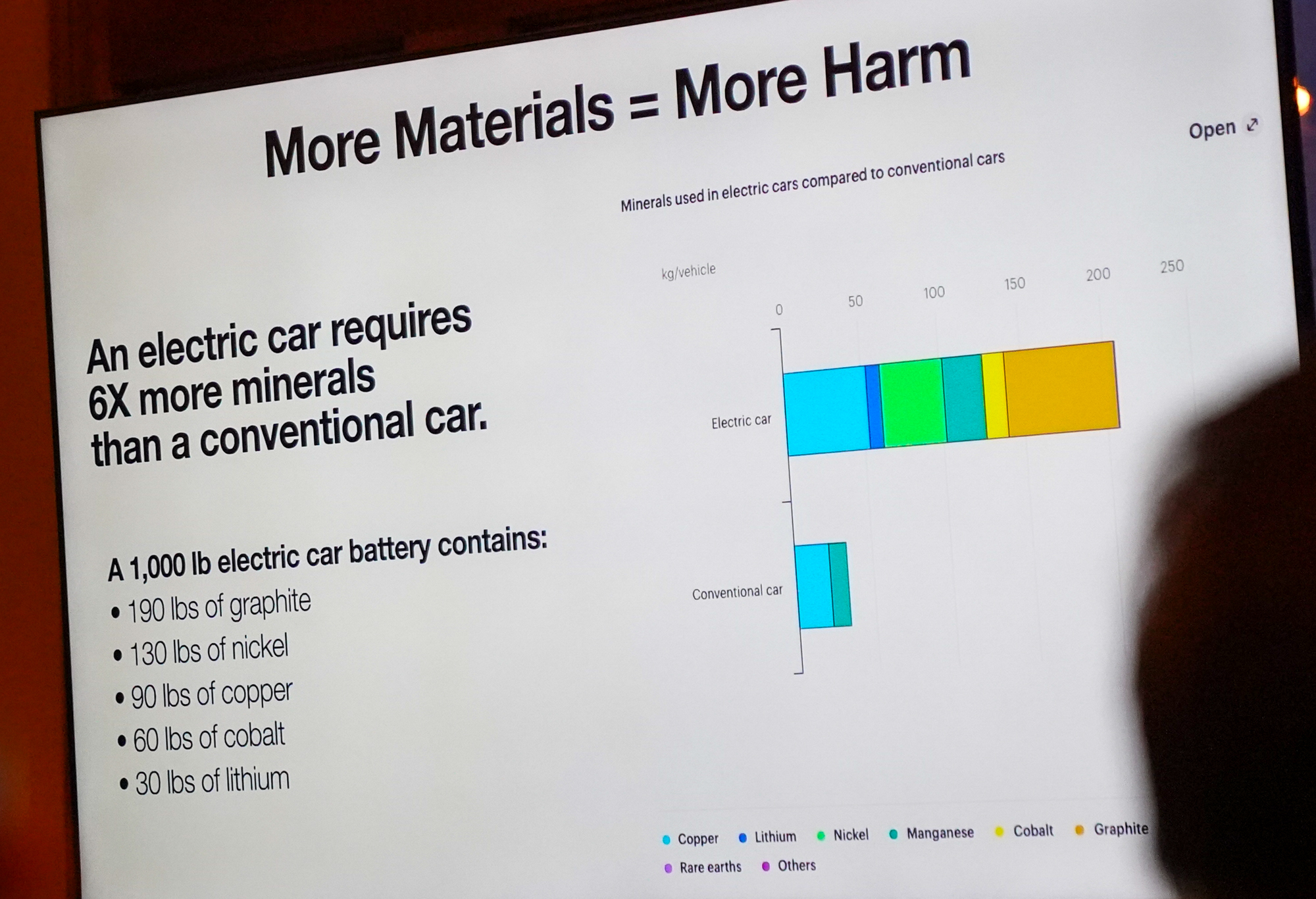
“An electric car requires six times more minerals than a conventional (gasoline-powered) car,” he said, listing them on a graphic. “A 1,000 lb. electric car battery contains 190 lbs. of graphite, 130 lbs. of nickel, 90 lbs. of copper, 60 lbs. of cobalt, and 30 lbs. of lithium (as well as manganese, rare earths, and other materials.”
He also pointed to the inefficiency of solar and how it repurposes land.
“To produce five gigawatts of power, solar requires 200,000 acres of land,” said Gitt. “Advanced nuclear technology produces the same amount of energy on just 200 acres.”
Gitt was adamant that when financing institutions around the world refuse to provide financing for developing nations needing more affordable energy solutions, such those using fossil fuels. Typically, those countries don’t have the resources to build more expensive solutions, such as advanced nuclear, but discouraging energy production by whatever means is counterproductive if the aim is to get populations out of energy poverty.
RECOMMENDED READING: In the Dark
A link to the digital edition of In the Dark: https://altamira.studio/itd

